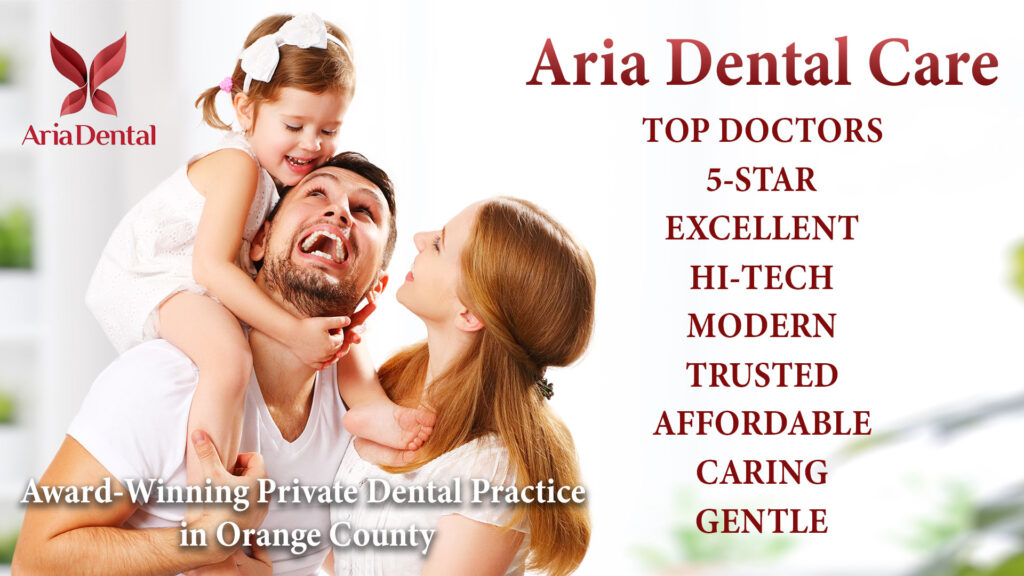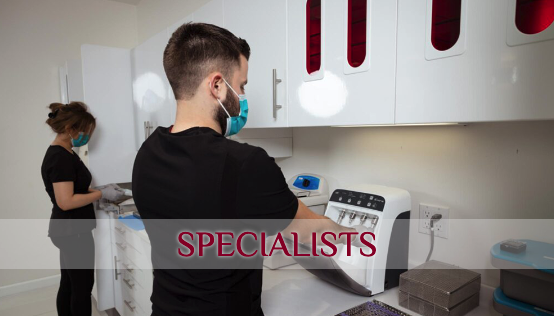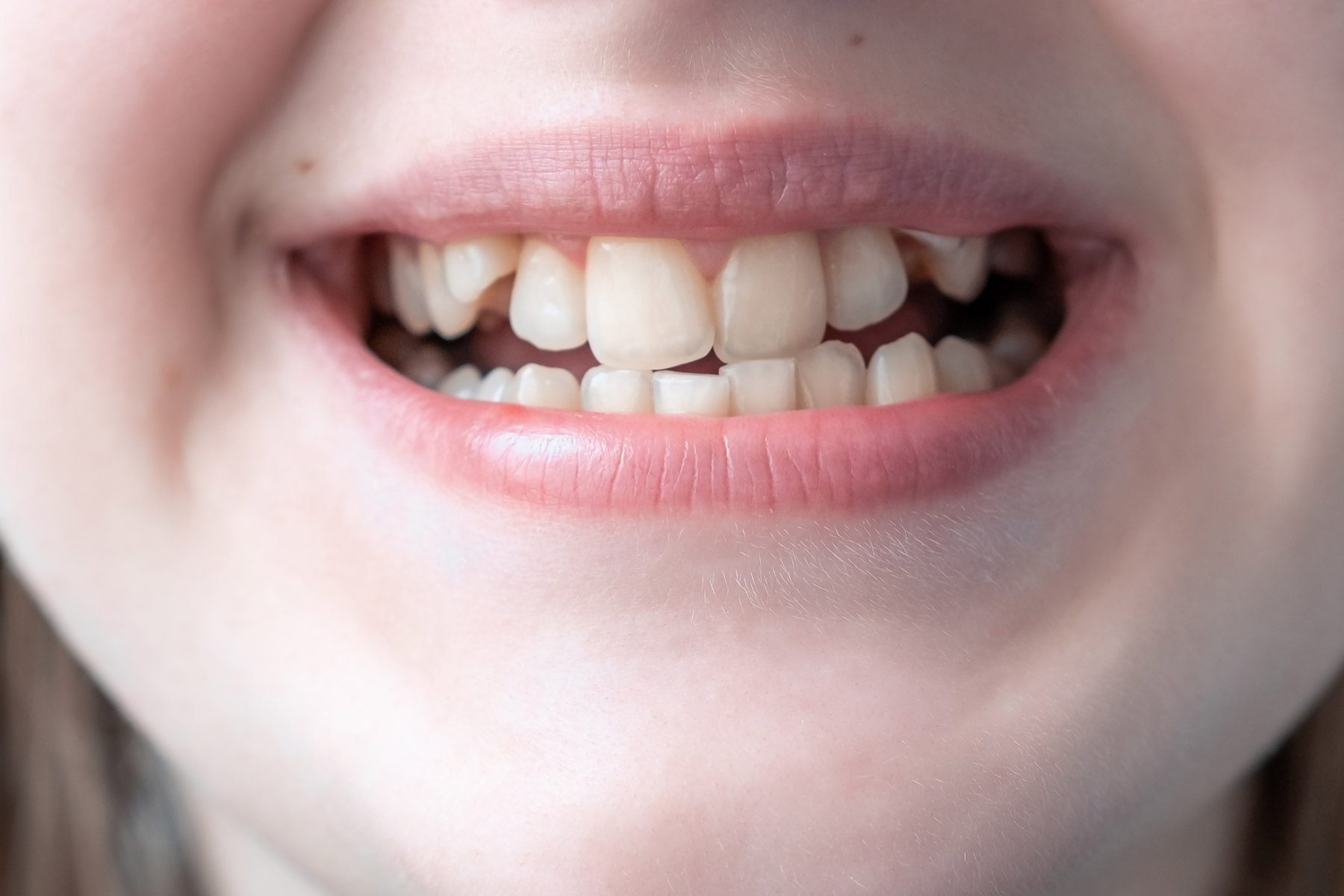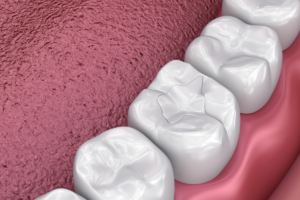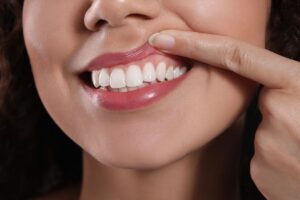Not all of us are blessed with naturally aligned and straight teeth. If you are one of those who are tired of hiding your crooked teeth, do know that you do not have to live like that for the rest of your life.
Crooked teeth are very common, and that is why dentistry has invented ways to treat them as a common dental flaw.
Crooked teeth, also known as misaligned teeth, develop when your upper or lower jaw is smaller than normal. Besides affecting your self-esteem, which can overwhelm you, crooked teeth can cause physical issues:
- When you have crooked teeth, it will be hard to brush and floss the areas between them, which may lead to plaque When built up, the plaque will irritate your gums and put a strain on your immune system. Gum diseases or missing teeth are what may occur due to this condition.
- Keeping crooked teeth clean is difficult, and even after a seemingly thorough cleaning, food might still remain caught between or around your teeth, which is annoying and can also lead to an increased risk of bad breath, gum disease, and tooth decay.
- Crooked teeth can cause wear and tear, and the increased tooth wear will generate uneven biting pressure in your top and bottom teeth. This pressure can lead to cracking and breaking of your teeth. It also increases the risk of tooth injuries.
- Difficulty in chewing is another outcome of having crooked teeth. Misaligned teeth prevent normal jaw alignment and make chewing painful. You cannot even fully enjoy what you eat when you have crooked teeth.
- Your overall health can be affected by your crooked teeth. Oral infections, gum diseases, and other oral conditions may lead to severe health disorders such as heart disease, diabetes, stroke, and low birth weight.
What Causes Crooked Teeth
Your teeth may grow incorrectly for many reasons:
Genetic influences
Your genetics, which on one has any control over, play the biggest part in the formation of crooked teeth. There’s a great chance you will have crooked teeth if one or both of your parents had crooked teeth.
The size of your mouth plays an important role too: A small mouth is more likely to harbor crowded teeth, causing other teeth to shift.
Overbites and underbites are abnormal protrusions caused by misaligned jaws. You can inherit this condition which will make the upper or lower teeth extend beyond each other.
An overbite develops where your upper teeth sit over the bottom teeth more than they should, and an underbite occurs if your lower jaw sits farther than your upper jaw.
Bad habits
Prolonged sucking of the thumb or a pacifier can cause baby teeth to become crooked or misaligned. If you continue your dummy habits past the age of five, your jaw’s development may be altered, and your teeth may mismatch between the upper and lower jaws.
Passive sucking on the thumb will cause minor damage, while vigorous sucking can affect your permanent bite.
Chronic mouth breathing is another habit that can contribute to the formation of crooked teeth.
Missing teeth
If you lose a baby tooth too early, the neighboring teeth could drift into the empty space, not giving enough room to other adult teeth to come through, causing crowded teeth.
If you are born without certain teeth, or your wisdom teeth fail to erupt, you may experience the same condition.
Trauma and injuries
Traumas that your jaw experiences will affect the development of your teeth. To prevent trauma, you are recommended to use mouthguards when you are doing sports or other activities that could potentially harm your teeth. Mouthguards can balance your bite and prevent injuries and concussions. Displacement of your teeth is often the number one reason for the most severe cases of crooked teeth. Injuries and illnesses allow the remaining teeth to shift slowly.

How to Fix Crooked Teeth
Deciding to straighten your teeth may seem complicated, but it is rational. Treating your crooked teeth not only gives you the smile you deserve, but also helps you prevent the risks of dental conditions which may develop due to the misalignment of your teeth.
Whatever the causes of your crooked teeth, there are several solutions available. Your response to various procedures differs based on your overall health and pre-existing oral issues. Still, you can benefit from helpful procedures once you decide to straighten your crooked teeth.
Braces for crooked teeth
One of the most effective treatments for crooked teeth is applying braces offered by orthodontic dentistry as the best long-term solution. Though braces are not quick fixes, they deliver lifetime results:
- Metal Braces: Fixed metal braces are stainless steel brackets and wires that attach to your teeth. This method is best for people who have complicated dental alignment issues.
- Ceramic Braces: Ceramic braces use clear or tooth-colored brackets. They are more prone to staining and may break easily.
- Invisible Braces: Invisible braces, like Invisalign, are advanced methods of teeth straightening. These aligners are comfortable, removable, and invisible.
In case of overcrowding, surgical procedures may be recommended to reposition the bones and gums, which can help hold your teeth in place.
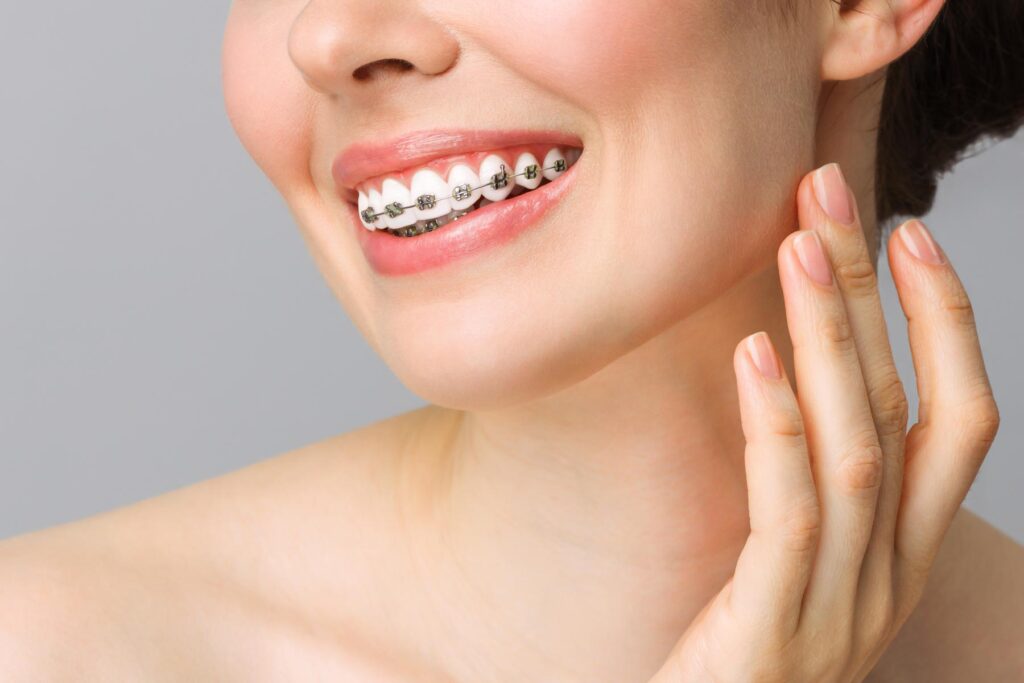
Contouring for crooked teeth
Teeth contouring is a straightforward treatment that allows you to reshape your teeth and make them look straight. The procedure is quick, pain-free, and safe, most recommended if your teeth are mildly crowded.
Bonding for crooked teeth
Dental bonding is another alternative treatment for your crooked teeth. It is an easy, fast, and minimally invasive method to straighten your teeth, with the help of composites that will naturally blend with your teeth.
Veneers for crooked teeth
Nowadays there are different aesthetic procedures at hand to target crooked teeth. Dentistry has employed some advanced methods to help you achieve a perfect smile.
Veneers are one of these cosmetic dental methods. Applying veneers is a versatile and transformative approach. Aside from giving you a beautiful smile, veneers help improve your overall teeth appearance and straighten your teeth without braces.
A veneer is a thin layer of tooth-colored material placed upon a tooth to enhance its appearance. Porcelain veneers can be helpful for targeting various dental issues, such as misaligned or crooked teeth. They can change the size and shape of your teeth. Veneers cannot realign your teeth, but they will cover your crooked teeth and give you an even smile.
Crowns for crooked teeth
Crowns are another technique to address your crooked teeth. Once fitted over the top of any damaged or broken teeth, crowns will help you achieve a confident smile.
Dental crowns are employed to repair extensive tooth decay, strengthen your tooth following a root canal therapy, and restore heavily cracked teeth. They can take away dental pain, discomfort, or damage. Crowns could last many years before needing to be replaced due to poor oral hygiene, traumas, or diseases.
Crowns are meant to look like your natural teeth, with the advantage of not getting stained with age or medications. Crowns are also sometimes utilized as a replacement to function like your natural dental roots. A combination of crowns and veneers may be applied to deliver your ideal smile.
Whatever your motivations for treating your crooked teeth, our professional dentists are waiting for you at Aria Dental, where you can learn about your oral conditions, get familiar with the methods to enhance your dental health, have your dental issues examined, and find the best-customized treatment for your problems. Here, you talk and we listen, you wish, and we deliver. If you are considering resurfacing oral therapies, contact us to share your concerns.
